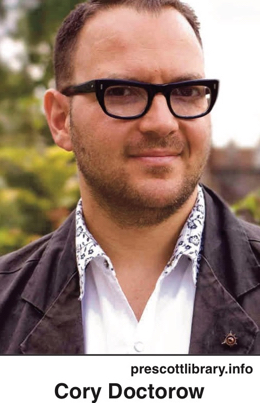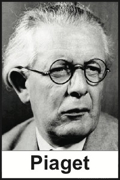Rascals case in brief
In the beginning, in 1989, more than 90 children at the Little Rascals Day Care Center in Edenton, North Carolina, accused a total of 20 adults with 429 instances of sexual abuse over a three-year period. It may have all begun with one parent’s complaint about punishment given her child.
Among the alleged perpetrators: the sheriff and mayor. But prosecutors would charge only Robin Byrum, Darlene Harris, Elizabeth “Betsy” Kelly, Robert “Bob” Kelly, Willard Scott Privott, Shelley Stone and Dawn Wilson – the Edenton 7.
Along with sodomy and beatings, allegations included a baby killed with a handgun, a child being hung upside down from a tree and being set on fire and countless other fantastic incidents involving spaceships, hot air balloons, pirate ships and trained sharks.
By the time prosecutors dropped the last charges in 1997, Little Rascals had become North Carolina’s longest and most costly criminal trial. Prosecutors kept defendants jailed in hopes at least one would turn against their supposed co-conspirators. Remarkably, none did. Another shameful record: Five defendants had to wait longer to face their accusers in court than anyone else in North Carolina history.
Between 1991 and 1997, Ofra Bikel produced three extraordinary episodes on the Little Rascals case for the PBS series “Frontline.” Although “Innocence Lost” did not deter prosecutors, it exposed their tactics and fostered nationwide skepticism and dismay.
With each passing year, the absurdity of the Little Rascals charges has become more obvious. But no admission of error has ever come from prosecutors, police, interviewers or parents. This site is devoted to the issues raised by this case.
On Facebook
Click for earlier Facebook posts archived on this site
Click to go to
Today’s random selection from the Little Rascals Day Care archives….
Click for earlier Facebook posts archived on this site
Click to go to
Today’s random selection from the Little Rascals Day Care archives….
The shocking ease of installing ‘lost memories’
 Feb. 13, 2015
Feb. 13, 2015
“Psychologists terminated a study (of 70 students at a Canadian university) that showed the ease of implanting false memories of committing terrible, violent crimes in the recent past – because some subjects couldn’t be convinced that they hadn’t committed the crime after they were told the truth.”
– From “Police interrogation techniques generate false memories of committing crimes” by Cory Doctorow at Boing Boing (Feb. 9)
More on this recent study from Sarah Barmak at the Toronto Star:
“If subjects said they couldn’t remember the false event, questioners reassured them they would be able to retrieve their ‘lost memories’ if they tried hard enough. If they began to ‘remember,’ experimenters asked for more detail. Do you recall any images? How did you feel? Visualize what it might have been like, they said, and the memory will come back to you….”
“Lost memories,” of course, were the fool’s gold mined so relentlessly by the prosecution therapists in the Little Rascals Day Care case. Remarkably, it took only three 40-minute sessions for the Canadian researchers to corrupt the memories of fully 70 percent of their college-age subjects – the Little Rascals children required months of implantation!
Piaget experienced reality of false memory
 Jan. 4, 2013
Jan. 4, 2013
“Psychologist Jean Piaget reported that his earliest memory was of his nurse defending him against a potential kidnapper at age two. He distinctly recalled sitting frightened in the baby carriage while the nurse fought off the man (incurring a scratch on her face in the process), and the police officer chasing away the kidnapper with his short white baton. Piaget was even able to describe the officer’s uniform in detail. His family, relieved that the nurse had prevented his kidnapping, rewarded her with a gold watch.
“Thirteen years later, the nurse returned the gold watch to the family accompanied by a letter confessing that she had made up the story because she wanted to raise the family’s opinion of her.
“Piaget used this false memory to emphasize the role of others’ influences on one’s memories. He noted that the nurse frequently had recounted the story in his presence, and others then had repeated the story in his hearing, thus creating the memories he had adopted as his own.
“Piaget noted that even in his old age those memories persisted as clear events, even though he knew them to be false.”
– From “The Encyclopedia of the Brain and Brain Disorders” by Carol Turkington and Joseph Harris (2009)
Given this phenomenon of memory, it’s hardly surprising that no child-witness against the Edenton Seven has stepped forward to publicly recant.
‘Capturing the Friedmans’ didn’t capture the Kellys
June 26, 2013
The suburban New York child sex abuse case documented in the Oscar-nominated “Capturing the Friedmans” (2003) returned to the spotlight Monday, this time because of a review panel’s finding that Jesse Friedman had in fact been rightfully convicted.
Although the New York Times describes the Friedman case as having come “to symbolize an era of sensational, often-suspect accusations of child molestation,” many aspects – including the 1988 confessions of both the defendant and his father – make it an outlier to the epidemic of day-care cases of that era.
The review panel itself emphasized this distinction, the Associated Press points out:
“The Friedman case has drawn comparisons to the 1980s McMartin Preschool scandal, but the investigators said they ‘were in no way similar.’ In the McMartin case, the report noted, more than 200 preschool children described being sexually abused by teachers, but only after months of highly suggestive questioning by social workers working with prosecutors. The report noted in the Friedman case, the victims were more than twice as old as the McMartin preschoolers and many in the Friedman case disclosed abuse quickly.”
Regardless, there are similarities, too. In an interview with the Village Voice interview last month, Jesse Friedman had this to say about the young computer students who testified against him:
“When I was in prison, my hope always hung on the idea that, give it five or 10 years; once they get to college, once they’re actual adults, once they’re old enough to no longer be living at home with their parents in Great Neck, they will come forward and admit that they lied.
“When (journalist( Debbie Nathan came to visit me, she told me that most of the complainants in the McMartin case publicly affirm that they were raped and abused in the McMartin Preschool. Whereas that case has been thoroughly, completely vetted beyond all doubt that nothing happened. And yet the kids involved believe that they were abused. She said, ‘You really can’t hang your hopes on the idea that the kids know that they lied and that nothing happened. Because they might very well think that something happened.’ “
Do the now-grown child-witnesses in the Little Rascals case “know that they lied and that nothing happened”? Or does the shapeless memory of their supposed abuse remain forever sealed from self-examination?
Is clinging to error really ‘how science progresses’?
 Nov. 30, 2012
Nov. 30, 2012
In 1993 (January-February issue), the journal Child Abuse & Neglect published “Sexual Abuse of Children in Day Care Centers” by Susan J. Kelley, Renee Brant and Jill Waterman. This is from the article’s abstract:
“Sexual abuse of children in day care center settings has received considerable attention in the past decade. The nature and extent of allegations of sexual abuse in day care poses unique challenges to clinicians. Cases of sexual abuse in day care typically involve multiple victims and multiple perpetrators, and use of extreme threats to prevent disclosure….”
The article’s misinformation has spread far beyond its original readership. Google Scholar shows “Sexual Abuse of Children in Day Care Centers” to have been cited in other publications no fewer than 36 times, as recently as this year.
I asked Child Abuse & Neglect to publish a retraction.
I received this response from editor-in-chief David A. Wolfe, professor of psychology and psychiatry at the University of Toronto:
“The journal only retracts papers if there are significant errors or other problems, such as plagiarism, health risks etc. Otherwise, it is up to the scientific community to decide when new knowledge or findings would usurp those previously published. This is the case in many areas of research, whereby older (sometimes well-accepted) findings are no longer given credence due to newer findings. It is not feasible or appropriate to remove the previous findings, as that is how science progresses.
“Unless you are aware of specific errors in the 1993 data, rather than drawing different conclusions, the journal would not take any further action.
“I trust this resolves your concerns.”
Well, no, actually it doesn’t. This is what I wrote back to Dr. Wolfe:
“The problem with ‘Sexual Abuse of Children in Day Care Centers’ is not a matter of ‘different conclusions’ being drawn from the data. The entire concept of the article is false: There was never any ‘multiple victim, multiple offender’ sexual abuse in day cares, any more than there was witchcraft in Salem. As has been thoroughly documented by social scientists such as Stephen J. Ceci and Maggie Bruck, and eventually validated in the legal system, all these ritual-abuse cases resulted from a moral panic.
“This passage is from the Retraction Guidelines of the Committee on Publication Ethics: ‘Retraction is a mechanism for correcting the literature and alerting readers to publications that contain such seriously flawed or erroneous data that their findings and conclusions cannot be relied upon. Unreliable data may result from honest error or from research misconduct.’
“And this is from Tom Reller (vice president of global public relations at publisher Elsevier): ‘Our journals, and academia overall, do better when shining a light on bad actors and bad science.’ ”….
“This is my concern, not yours, but ‘bad science’ fostered numerous convictions in Little Rascals, McMartin and other day care prosecutions of the 1980s and early 1990s. A retraction in a journal such as yours would be a significant step toward obtaining true exoneration for these defendants.”
No response from Dr. Wolfe. Maybe he’s reconsidering?











0 CommentsComment on Facebook